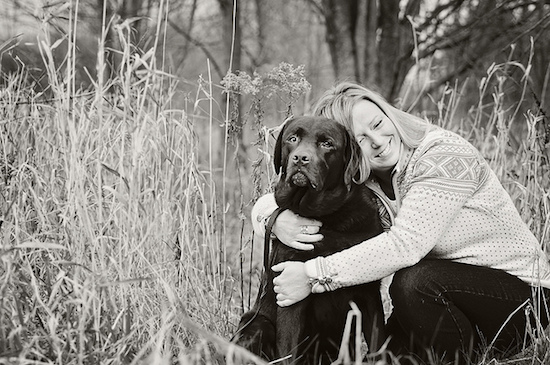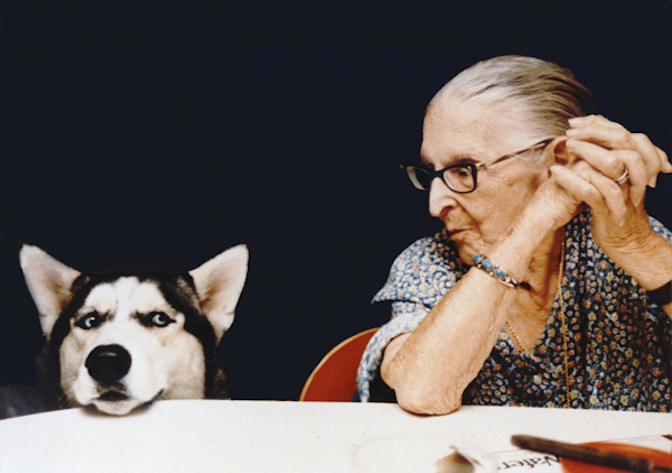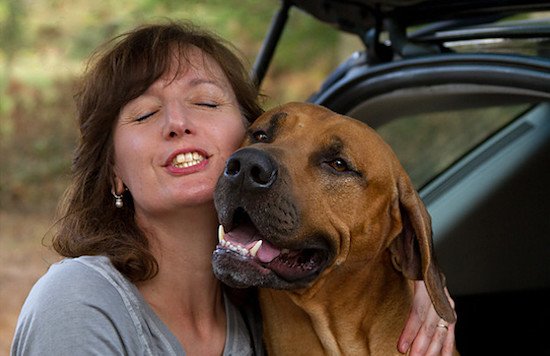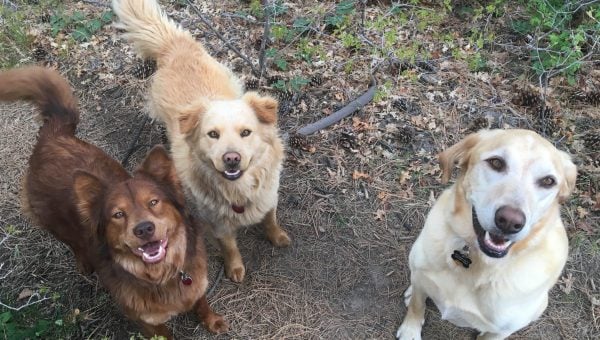Since we generally live decades longer than our pets, why bother including animals in our end-of-life documents? Aren’t those important papers for family members, children, and assets?
Pets may not be our the primary concern when we consider our last will and testament. But for dog-lovers, pets are a big part of the family. We care for them almost like we do our children, so shouldn’t our dogs be included in our final plans?
Let’s face it. We never know for sure when our “time will come.” Even if we outlive our pets, we may experience an accident or illness, in which case our pets will require temporary care. Though we can’t peer into the future, we can at least prepare for unfortunate possibilities.
Why You Should Include Your Dog in Your Will

Flickr / @Nick Yap
1. You should have a will anyway. Why not add your pet?
It’s generally good “adulting” to set up a will and other end-of-life documents like a durable power of attorney, a medical release, and advance directives. Anything can happen at any time, which is why it’s important for your loved ones to understand your wishes and know who will take charge of your affairs in your absence. Without these documents, chaos can ensue during a very emotional time.
2. Grieving and problem-solving don’t mix well.
It’s easy for humans to overlook pets in the immediate aftermath of an owner’s death. Family and loved ones will be hampered by grief while trying to handle logistics and arrangements that may be unfamiliar. These sad occasions can be overwhelming, and even our closest allies may accidentally neglect the one family member who can’t pick up the phone or ask for help.

Flickr / @cristina
3. Planning ahead leads to better solutions.
Caring for pets isn’t for everyone, and we can’t assume our friends and family will magically figure out the great solution we’ve imagined! (My best friend would help me hide a body, but she would never take my dog—or any dog—into her home.) It’s important to think seriously about what you want for your pet and who would be the best person to take over your duties. Creating a will naturally guides you through this thought experiment.
4. If it’s not in writing, you can’t count on it.
You might come to a wonderful verbal agreement with a friend about your pet’s care if worse comes to worse. But we sometimes tackle tough conversations with false bravery and a quick exit. “Dude, you’ll take my dog if I get hit by a bus, right?” [Drinks fourth happy hour beer.] “Totally, dude. I got you.” [Fist bump.]
Such conversations are quickly lost to the annals of Happy Hour History. Or your friend gets married, has three kids, and can’t possibly take in a dog if you were there to beg. That’s why it’s essential that you make careful plans, put them in writing, and update them if situations change.
How to Include Your Dog in Your Will

Flickr / @Eric Sonstroem
1. Identify emergency caregivers and have a serious heart-to-heart.
Before you even begin drafting a will, identify two friends or relatives who are willing to care for your pet in your absence. Make sure these surrogates can accommodate a pet in their lives, and that they understand how you like to care for your dog. Discuss their level of willingness and how you can prepare to help them financially. Make sure they have keys to your home, detailed instructions for care, your vet’s information, and an outline of the details you discussed.
Also make sure your two friends know how to contact each other. This will ensure good care for your dog even in more everyday emergencies—if your flight is long-delayed, if you have to rush off to care for a family member in an emergency, etc.
2. Consult your attorney to make changes to an existing will.
If you have complex or substantive assets, you probably have an attorney who’s helped you prepare the documents you need for end-of-life concerns. If you don’t, get busy! If you do have an attorney, make an appointment and explore how to best cover the specific wishes you have for your pet’s permanent care.

Flickr / @Sarah Taylor
3. Consider creating a trust for your pet.
Wills do have their limitations, primarily because they can take time to execute or implement. This can potentially leave your pet in limbo, unless you feel confident about the plans you’ve made with back-up caregivers. Your surrogates don’t necessarily need the execution of the will to adopt your pet. But if any complications arise, a will can slow things down.
A trust, on the other hand, allows you to determine when changes go into effect. It can be used in cases of illness (not only death), and you can allocate money for your pet’s care.
4. Create your own documents with reliable, affordable guides.
It’s not imperative that you have an attorney set up your will or other end-of-life documents. There are affordable online tools to guide you through the process.
The website LegalZoom is well-established, and it offers relatively affordable guides, advice, and attorneys available for chat consultations. The Tomorrow app can help you organize your investments, purchase life insurance, and create wills and trusts. There are also a number of free sites with information about legal requirements in your state.
Remember: It’s Not for You, It’s for Them

Flickr / @evinoryan88
Imagining your own demise is absolutely no fun. It requires mental and emotional stamina to sort through serious questions, make tough decisions, and trek through the process. Most of us are already busy with one hundred other things, so the undertaking (pun intended!) seems all the more daunting.
But remember, just because wills, trusts, and end-of-life planning fall in the legal zone, this doesn’t mean you have to wade through a legal quagmire to get there. It can be done more easily and affordably than you think.
The important thing to remember is that creating these documents is a loving act for the people and pets who mean the most to you. They don’t actually benefit you, other than giving you peace of mind. This process is a way of caring for others. In other words, getting your affairs in order now is a gift to family, spouses, and pets—a gift that lasts beyond your lifetime.





